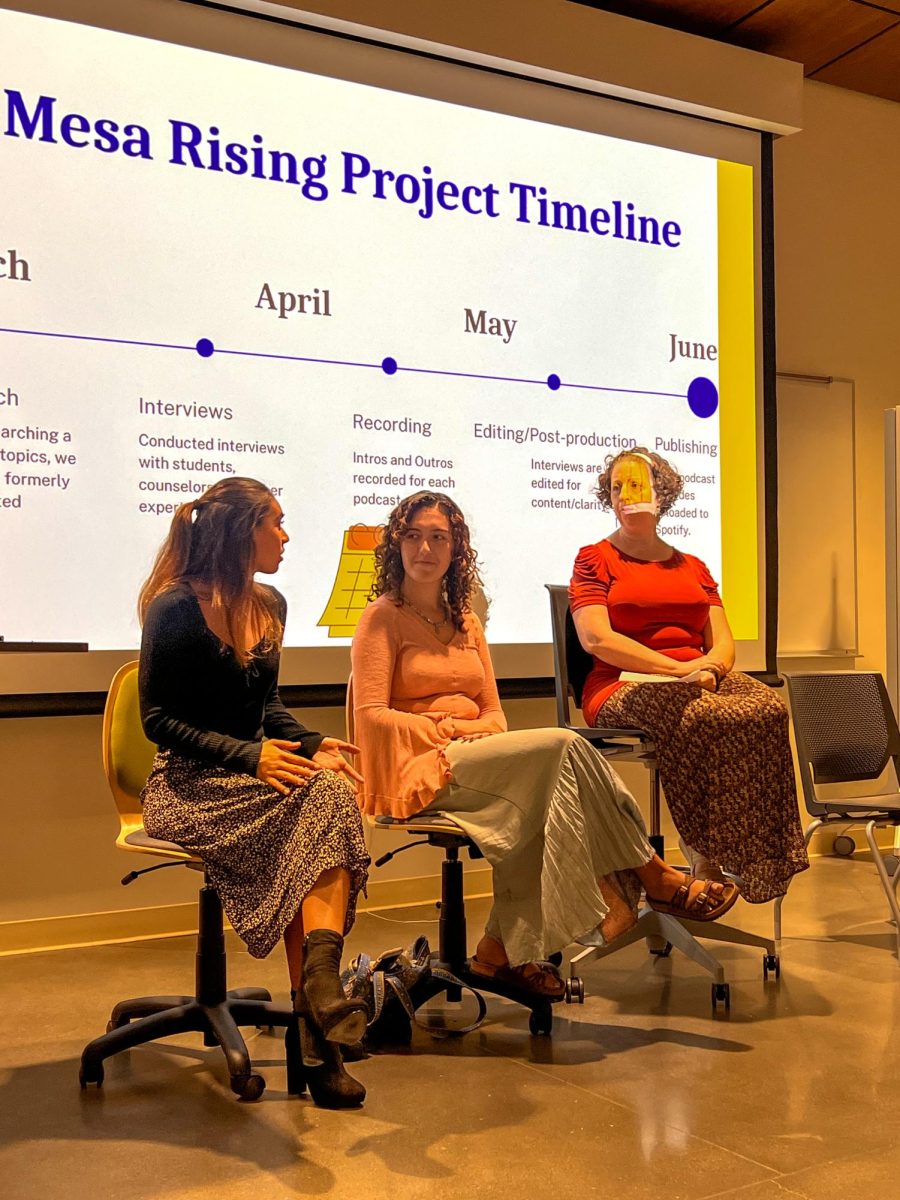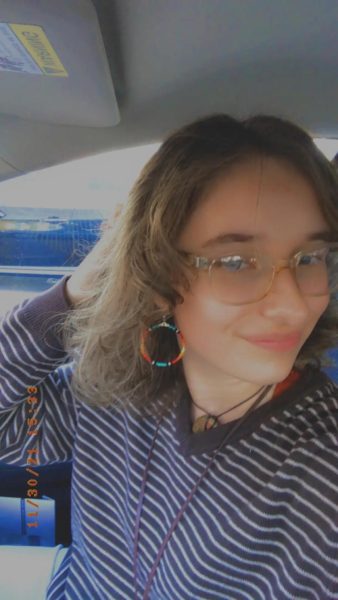College is hard enough for recent high school graduates trying to navigate an adult world for the first time; but what about for formerly or currently incarcerated people?
From the career and housing barriers to the judgments of strangers, anyone with a criminal record can find it a struggle to reintegrate into society. However, they are still people and still deserve a chance at higher education just like anyone else. A group of Mesa Press student journalists took the opportunity to report on this issue in a fascinating way.
Mesa College hosted an event to promote the new “Mesa Rising” podcast series, all about the experiences of formerly incarcerated students on campus, on Oct. 3. Two of the podcast’s creators were in attendance (as well as some interviewees), along with 20 or so Mesa students and counselors who showed up to learn about and support the program.
“Mesa Rising” is named for the Rising Scholars program at Mesa College. Started in 2018, the program is meant to provide resources and support for students who’ve previously been incarcerated and wish to get an education. Cal Humanities, an organization that provides financial and educational support for college journalism programs, gave a grant to the Mesa Press in order to cover the story of the Rising Scholars.
The Mesa Rising podcast consists of six episodes: two introductory episodes, three interviews with formerly incarcerated students, and one interview with San Diego public defender Lisa Charkukul. The podcast was produced by four former Mesa students: Xamara Aleman, Hana Marrone, Nicole Hayek, and Alysse Dodge. Aleman, Hayek, and Dodge are now journalism students at San Diego State University.
Each episode gives a deep look into not only what the program does, but why it is so important to the students that benefit from it. The personal interviews are poignant, tear-jerking testimonies to the hardships of life and the courage of these individuals who have risen up from their unfortunate circumstances.
The students interviewed for the podcast are Daniel Woldemichael, Gia Lori Blaylock, and Mimi Holmes. Blaylock and Holmes were both present for the Oct. 3 presentation and gave brief statements about their feelings on the podcast and its impact on listeners.
The presentation was facilitated by professor Janna Braun, faculty advisor to the Mesa Press. Aleman and Marrone sat on stage and answered questions from Braun, as well as fielding questions toward the podcast participants.
When asked if she was worried about the portrayal of her story on the podcast, Holmes stated: “No, I wasn’t worried at all […] Honestly I wish I could have shared more, because I wanted to give more advice to anyone else who may have experienced the same type of situation. I’m just happy I made it here today.”
Karen Geida, a counselor with the Mesa Rising program, had also said: “…we don’t wanna talk about what happened in our past, but when you hear their stories, it’s pretty amazing how far they’ve come. And then the dedication that they have to school, to each other, it’s such a huge reward for me.”.
The wide range of emotions conveyed during this gathering ranged from pain, to love for one another, and eventually to some laughter. Blaylock eventually admitted that “I never even thought that this was gonna be big… and then people started coming up to me, and they were like, ‘I heard your podcast!’”
But the strongest feeling seemed to be a sense of togetherness, a realization that no matter the circumstances or choices in one’s life, people will still find ways to unite. The interviewers and interviewees involved in the making of the Mesa Rising podcast have succeeded at this, breaking down barriers in order to make life a little easier for their fellow human beings.
When asked what she would want people to take away from hearing her story, Holmes simply said, “Inspiration and encouragement. If you’ve ever experienced anything to do with incarceration, you can always overcome it and get through it. Just always believe in yourself, never give up.”




